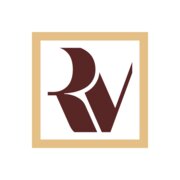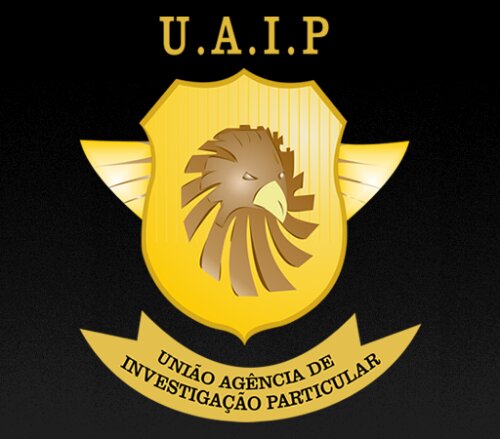Best Government Relations & Lobbying Lawyers in Brazil
Share your needs with us, get contacted by law firms.
Free. Takes 2 min.
Or refine your search by selecting a city:
List of the best lawyers in Brazil
About Government Relations & Lobbying Law in Brazil
Government relations and lobbying in Brazil involve engaging with government officials and institutions to influence public policy and decision-making. This practice is vital for businesses, non-profits, and individuals seeking to advocate for certain legislative or regulatory changes. While lobbying is a recognized part of democratic systems worldwide, it requires careful navigation of legal and ethical standards. In Brazil, these activities are regulated under specific frameworks and laws, which seek to ensure transparency and accountability.
Why You May Need a Lawyer
Understanding the intricate legal landscape of government relations and lobbying in Brazil can be daunting. Legal assistance might be required in situations such as:
- Ensuring compliance with relevant laws and regulations to avoid penalties or reputational damage.
- Drafting and submitting formal communications and proposals to government entities.
- Representing your interests during government investigations or inquiries.
- Building strategies for effective legislative advocacy.
- Understanding and interpreting complex legal reforms affecting your industry.
- Advising on conflict of interest and maintaining ethical standards.
Local Laws Overview
There are several key legal frameworks governing government relations and lobbying in Brazil:
- Anti-Corruption Laws: The Clean Company Act sets strict standards against corrupt practices in interactions with public officials.
- Lobbying Regulation: Unlike some countries, Brazil does not have a comprehensive law specifically regulating lobbying, but various legislative proposals have been discussed. Current regulations come from a combination of ethical guidelines and transparency requirements.
- Transparency Legislation: The Access to Information Act (Lei de Acesso à Informação) demands transparency from public officials, which impacts how lobbyists can interact with them.
- Public Ethics Codes: Lobbyists must adhere to various codes of conduct aimed at preventing conflicts of interest and promoting integrity.
Frequently Asked Questions
What is lobbying?
Lobbying involves activities aimed at influencing government officials to create or modify laws, regulations, or policies to favor certain interests.
Is lobbying legal in Brazil?
Yes, lobbying is legal in Brazil, but it is regulated under various laws and ethical guidelines to ensure transparency and prevent corruption.
Do lobbyists need to register in Brazil?
Currently, Brazil does not have a specific requirement for lobbyist registration, but transparency and accountability measures are enforced under other regulatory frameworks.
How can a lawyer help in government relations?
A lawyer can assist by ensuring compliance with all relevant legal frameworks, representing you in negotiations, and offering strategic counsel to protect your interests.
What are the consequences of illegal lobbying activities?
Engaging in illegal lobbying can lead to criminal charges, hefty fines, and damage to reputation for both the individual and associated organizations.
Who can lobby in Brazil?
Any individual or organization can engage in lobbying activities, provided they adhere to legal and ethical standards set forth by Brazilian laws.
How can transparency be ensured in lobbying practices?
Transparency can be ensured by publicly disclosing all lobbying activities, maintaining clear and truthful communication, and adhering to the Access to Information Act.
What is the role of the Clean Company Act?
The Clean Company Act holds organizations accountable for corrupt actions and sets expectations for ethical business practices in interactions with public officials.
Can foreign entities engage in lobbying in Brazil?
Yes, but foreign entities must adhere to local laws and anti-corruption measures, similar to domestic groups.
How can I stay informed about changes in lobbying laws?
Keeping in regular contact with legal experts and monitoring updates from governmental bodies can help stay informed about any changes in lobbying laws.
Additional Resources
The following resources can be helpful for those seeking further information or legal advice in government relations and lobbying:
- Controladoria-Geral da União (CGU) - Provides guidance on transparency and anti-corruption measures.
- Conselho Federal da Ordem dos Advogados do Brasil (OAB) - Offers directories and resources for finding legal expertise.
- Instituto Ethos - Focuses on promoting ethical business practices in Brazil.
Next Steps
If you require legal assistance in the field of government relations and lobbying, consider the following steps:
- Identify specific areas where you need legal advice or representation.
- Seek out legal professionals with expertise in government relations and lobbying laws.
- Prepare documentation and information related to your lobbying activities for initial consultations.
- Discuss the scope of services, fees, and any expected outcomes with your legal representative.
- Stay informed about any new regulations or changes in law that might impact your activities.
Lawzana helps you find the best lawyers and law firms in Brazil through a curated and pre-screened list of qualified legal professionals. Our platform offers rankings and detailed profiles of attorneys and law firms, allowing you to compare based on practice areas, including Government Relations & Lobbying, experience, and client feedback.
Each profile includes a description of the firm's areas of practice, client reviews, team members and partners, year of establishment, spoken languages, office locations, contact information, social media presence, and any published articles or resources. Most firms on our platform speak English and are experienced in both local and international legal matters.
Get a quote from top-rated law firms in Brazil — quickly, securely, and without unnecessary hassle.
Disclaimer:
The information provided on this page is for general informational purposes only and does not constitute legal advice. While we strive to ensure the accuracy and relevance of the content, legal information may change over time, and interpretations of the law can vary. You should always consult with a qualified legal professional for advice specific to your situation.
We disclaim all liability for actions taken or not taken based on the content of this page. If you believe any information is incorrect or outdated, please contact us, and we will review and update it where appropriate.
Browse government relations & lobbying law firms by city in Brazil
Refine your search by selecting a city.













